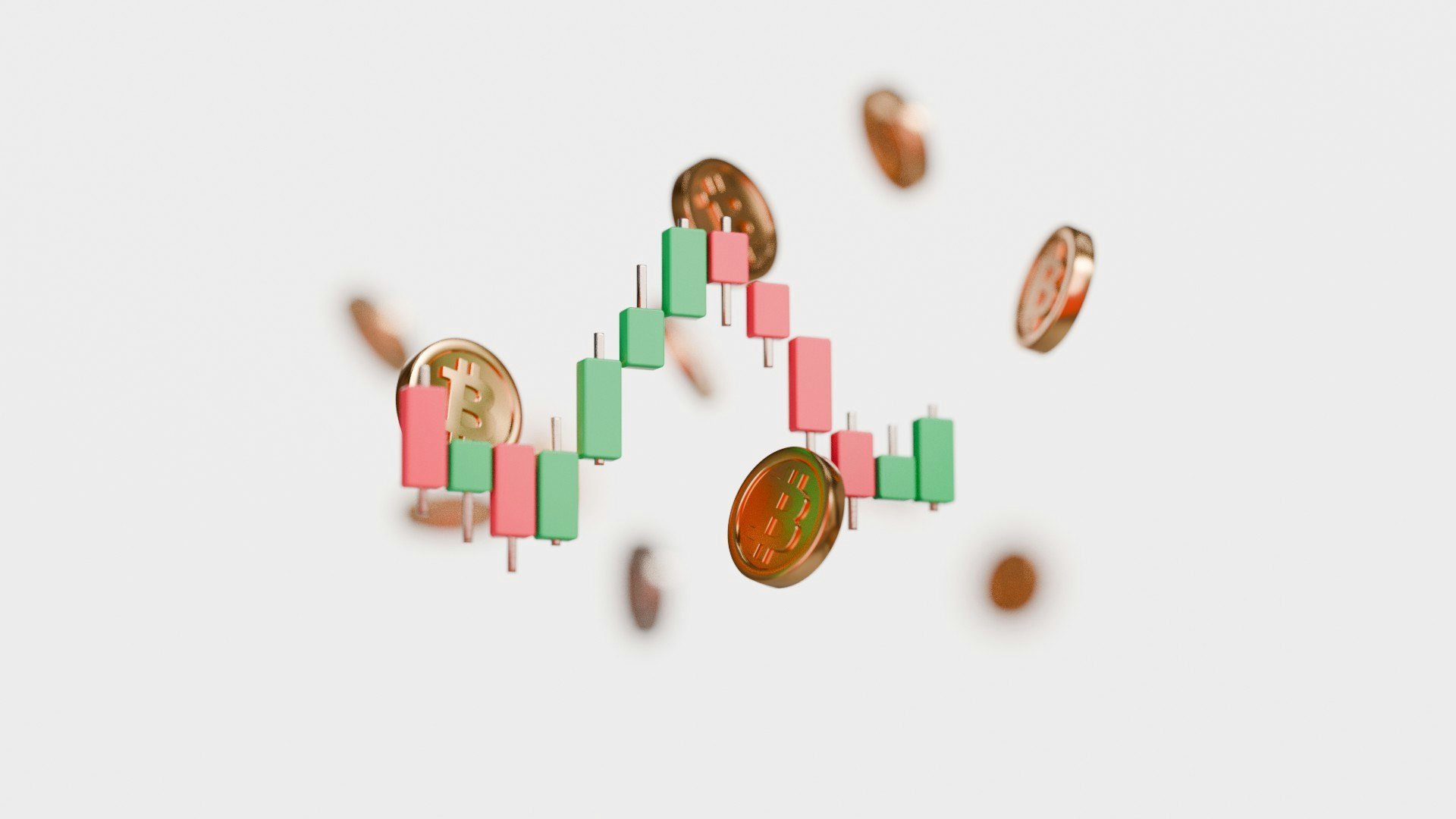Don’t invest unless you’re prepared to lose all the money you invest. This is a high‑risk investment and you should not expect to be protected if something goes wrong.
Buy Bitcoin vs. Buy Bitcoin ETFs: A Comparison
Bitcoin Vs Bitcoin ETFs: Are there advantages of buying Bitcoin directly versus investing in Bitcoin ETFs?
In this article...
- Investing in Bitcoin: Direct or ETFs?
- Compare the pros and cons of each option.
- Choose the best investment strategy for you.
Buy Bitcoin vs. Buy Bitcoin ETFs: A Comparison

Bitcoin Vs Bitcoin ETFs: Are there advantages of buying Bitcoin directly versus investing in Bitcoin ETFs? Here we list the pros and cons of both, factoring in autonomy, protection, and long-term potential.
Spot Bitcoin exchange-traded funds (ETFs) have exploded into every financial journal like cryptocurrency investing is a brand new thing. But we all know that and other cryptocurrencies has been around for more than a decade. So what is the big deal with Bitcoin ETFs?
Bitcoin ETFs are an alternative route for investors seeking exposure to Bitcoin without directly owning the digital asset. However, when it comes to the choice between owning actual Bitcoin and investing in Bitcoin ETFs, there are some things to think about.
What are the between Bitcoin ETFs / Spot Bitcoin ETFs or just owning Bitcoin outright? Let’s dig in.
Owning Bitcoin vs. Bitcoin ETFs
Bitcoin ETFs: You don’t have to learn anything new
Bitcoin ETFs function similarly to gold ETFs. When you invest in a gold ETF, you receive shares representing ownership of a certain amount of gold held by the fund.
Similarly, Bitcoin ETFs provide exposure to Bitcoin’s price movement without requiring you to hold the actual cryptocurrency. Generally, the ETF will hold actual Bitcoin as its underlying asset, but may also hold cash or Bitcoin derivatives. Accordingly, the price of Bitcoin ETFs may broadly track the price of Bitcoin but this may not always be exact.
For investors who don’t want to learn how to open an account on a crypto exchange (which is actually super convenient on CoinJar) then ETFs offer an alternative. You don't have to think, you can do what you have always done. Then you can go play pickleball or collect vintage Barbies or whatever you do with the time you've saved.
However, this convenience comes at a cost. You don’t directly own Bitcoin; you merely hold units of the ETF.
Owning Actual Bitcoin
When you own actual Bitcoin, you eliminate risk associated with the companies holding Bitcoin on behalf of the ETF fund managers. What if these custodians face protection problems or regulatory issues? What if they go bankrupt in a blaze of controversy? But if you yourself buy Bitcoin, consider these storage options.
CoinJar Wallet: CoinJar provides its own wallet service. It is convenient, however being an online wallet there is a risk that it may be a victim of a cyberattack. Online wallets are also called “hot wallets”.
External Wallets: If you want to hold on to your Bitcoin for a while, you can transfer your Bitcoin to an external wallet. Hardware wallets are also known as “cold wallets” (like Ledger or Trezor) and these are effective for long-term storage as they are offline and seriously difficult to hack.
CoinJar has been operating since 2013. CoinJar keep the vast majority of customer assets in cold storage or and maintain full currency reserves at all times.
Owning Your Own Bitcoin: Pros and Cons
For those who are committed to the long-term potential of Bitcoin, direct ownership might be more interesting. However, the price of Bitcoin may be volatile and you are relying on your own judgment, vs the experience of ETF fund managers who presumably would have good insight into the market.
Like crypto, ETFs may be subject to market fluctuations, management fees, and regulatory changes.
Owning Bitcoin yourself means not only can you hold it, but you can use it as a medium of exchange. You can even buy things like a or a With a spot Bitcoin ETF this may not be possible and you will have to sell units in the ETF for cash.
Conclusion: Why investors are buying Bitcoin vs buying Bitcoin ETFs
Bitcoin ETFs are convenient if you already have investments in other ETFs, however they lack the benefits of direct ownership. But you can rely on the expertise of fund managers if you don’t have experience yourself.
Bitcoin is backed by a philosophy of personal sovereignty which might appeal to some people. The core idea behind Bitcoin lies in its decentralisation and the ability to be your own bank. If you seek financial independence, you might be more tempted to buy Bitcoin and keep it on CoinJar or keep it in your own cold or hot wallet.
, Bitcoin has been amongst the top performing assets over the course of its life.
However this isn’t a guarantee of how it will perform in the future.
Spot Bitcoin ETFs for its investors initially.
At the time of writing (7th May 2024), however, as , this led to record exits from US spot products.
In the battle of owning Bitcoin vs. Bitcoin ETFs, it probably comes down to preference of being your own “bank” and owning Bitcoin directly, or paying uncompetitive fees for convenience and experience with a spot Bitcoin ETF.
Disclaimer: The information on this page is factual information only and is not intended to be financial product advice, legal advice or tax advice, and should not be relied upon as such. The information is general in nature and may omit detail that could be significant to your particular circumstances. The information is provided in good faith and derived from sources believed to be accurate and current at the date of publication. While all care has been taken to ensure the information is correct at the time of publishing, laws and regulations can change from time to time and CoinJar is not liable for any loss arising from reliance on this information, including reliance on information that is no longer current. We recommend that you seek appropriate professional advice before making any financial decisions.

Frequently Asked Questions
Can Bitcoin ETFs (exchange-traded funds) offer a way to gain exposure to Bitcoin without directly purchasing Bitcoin on a cryptocurrency exchange?
These ETFs, including Bitcoin futures ETFs, fall into the category of asset classes and have specific investment objectives. Investors can buy or sell shares of these ETFs on stock exchanges, similar to trading Bitcoin on a cryptocurrency exchange.
However, unlike purchasing Bitcoin and holding the private keys yourself, Bitcoin ETFs provide an alternative for those seeking to avoid the complexities of managing digital assets.
ETF approval for Spot Bitcoin ETFs were a long time coming! It's important to remember that Bitcoin ETFs, like mutual funds, are subject to price volatility and past performance, as indicated by future results, is not indicative of future returns.
This information is for informational purposes only and should not be taken as investment advice. While Bitcoin ETFs aim to track the spot price of Bitcoin, Bitcoin futures ETFs specifically invest in Bitcoin futures contracts, which may have different pricing dynamics.
While buying Bitcoin directly gives you ownership of the digital currency, ETFs trade on stock exchanges, offering exposure to Bitcoin's price movements through derivatives like futures contracts.
In the crypto world, spot ETFs offer exposure to the price of Bitcoin without directly owning it, providing a way to track the price movements of Bitcoin. While spot ETFs may have an expense ratio, investors don't need to hold any crypto. It might be interesting to investors seeking to diversify their portfolio with over a billion in assets already invested in ETFs of varying types.
Most of these products will have trading fees.

Suggested Articles
What is Bitcoin (BTC)? What is "Digital Gold" Used For?
What is Bitcoin? It is a digital currency that can be traded, exchanged, and used as a form of payment independent of central banks and governments.What is Ethereum? What is ETH Used For?
Ethereum is a decentralised blockchain-based open-source software platform that allows for the development of decentralised applications (dApps).What Is Crypto? How do Cryptocurrencies Work?
Crypto has become incredibly popular. But how does this digital currency work? And are there cryptos other than Bitcoin?Browse by topic




Cryptoassets traded on CoinJar UK Limited are largely unregulated in the UK, and you are unable to access the Financial Service Compensation Scheme or the Financial Ombudsman Service.
We use third party banking, safekeeping and payment providers, and the failure of any of these providers could also lead to a loss of your assets. We recommend you obtain financial advice before making a decision to use your credit card to purchase cryptoassets or to invest in cryptoassets. Capital Gains Tax may be payable on profits.
CoinJar’s digital currency exchange services are operated in the UK by CoinJar UK Limited (company number 8905988), registered by the Financial Conduct Authority as a Cryptoasset Exchange Provider and Custodian Wallet Provider in the United Kingdom under the Money Laundering, Terrorist Financing and Transfer of Funds (Information on the Payer) Regulations 2017, as amended (Firm Reference No. 928767).
Apple Pay and Apple Watch are trademarks of Apple Inc. Google Pay is a trademark of Google LLC.
This site is protected by reCAPTCHA and the and apply.